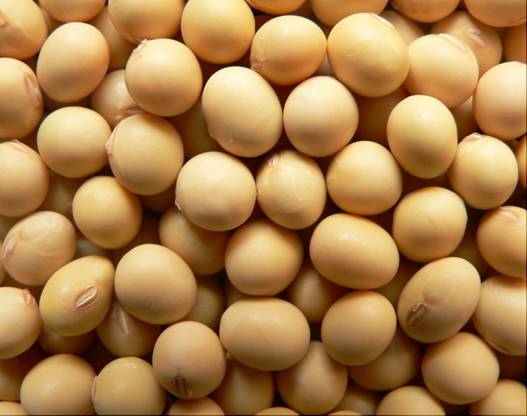Products
Contact us
- Changsha Herbal Ingredient Co.,Ltd
- Tel: 0086-731-88250818
- Add:No.56,Zhanxing Rd,Changsha,China,410205.
 sales@herbal-ingredient.com
sales@herbal-ingredient.com CHI-extracts
CHI-extracts

Soybean Extract
Latin Name:Glycine max (L.) Merrill[Fam. Fabaceae]
Active Ingredient:Isoflavones
CAS No:552-66-9
Specification:40%,80%Isoflavones By HPLC
MOQ:1kg
Lead Time:Within 7days after confirming order
Soybean Extract Information:
Soybean (Glycine max (L.) in latin); This member of the pea family (Fabaceae) grows from 1-5 feet tall and forms clusters of 3-5 pods that each contain 2-4 beans. species of legume native to East Asia. It is an annual plant that has been used in China for 5,000 years as a food and a component of drugs. The main producers of soy are the United States, Brazil, Argentina, China and India.
Soy isoflavones are phytochemical constituents of soybeans, a legume that has served as the basis for various foods in many Southeast Asian countries for thousands of years. The major isoflavones in soy are genistein and daidzein. Soyfoods also contain other valuable constituents, including protein, saponins, and phytosterols.
Active Ingredients:
Isoflavones including genistein, daidzein and glycitein, saponins, phytosterols and protein.
Genistein
Synonyms: 4',5,7-Trihydroxyisoflavone
Molecular Formula C15H10O5
Molecular Weight 270.24
CAS Registry Number 446-72-0
Melting point 297-298°C
Water solubility : insoluble
Daidzein
CAS NO: 486-66-8
PHYSICAL APPEARANCE: pale yellow solid (mp = 315-323°C decomp.)
MOLECULAR FORMULA: C15H10O4
MOLECULAR WEIGHT: 254.2
SOLUBILITY: Soluble in DMSO (25mg/ml) and ethanol (2mg/ml)
Glycitein
Synonyms: 4',7-Dihydroxy-6-methoxyisoflavones
Molecular Formula C16H12O5
Molecular Weight 284.26
CAS Registry Number 40957-83-3
Genistin
Name: Genistin
Synonyms: 4',5,7-Trihydroxyisoflavone 7-Glucoside
Molecular Formula C21H20O10
Molecular Weight 432.38
CAS Registry Number 529-59-9
Daidzin
Synonym: Daidzein-7-O-β-D-glucopyranoside
Molecular Formula: C21H20O9
Molecular Weight: 416.38
CAS Number: 552-66-9
Glycitin
CAS Registry Number: 40246-10-4
Molecular Weight: 446.41
Molecular Formula: C22H22O10
Indications and Uses:
Soybean extract can protect against cancer as well as heart disease. The mild estrogen activity of soy isoflavones may ease menopause symptoms for some women, without creating estrogen-related problems, and may help regulate hormone levels in premenopausal women. Soy isoflavones may also play a beneficial role in preventing osteoporosis and autoimmune conditions.
Benefits:
Genistein and daidzein have been well researched by scientists for their antioxidant and estrogenic properties.
Isoflavones may reduce the risk of hormone-dependent cancers, such as breast and prostate cancer, as well as other cancers. A review study of soy research found that 65 percent of 26 animal-based cancer studies showed a protective effect of soy or soy isoflavones. Human research and population studies also suggest that soy can protect against cancer as well as heart disease. The mild estrogen activity of soy isoflavones may ease menopause symptoms for some women, without creating estrogen-related problems, and may help regulate hormone levels in premenopausal women. Soy isoflavones may also play a beneficial role in preventing osteoporosis and autoimmune conditions.
A number of new studies have confirmed anti-cancer effects, more so for genistein than daidzein. Studies have also determined that soy isoflavones can help prevent bone-loss when calcium is deficient, and they can improve blood fat and cholesterol profiles and thus reduce the risk of heart disease.
Two particularly important isoflavones in soy--genistein and daidzein--appear to protect against hormone-related disorders such as breast cancer and endometriosis. They do this by competing for the same place on cells (receptor sites) that the body's own estrogen does. Some of the risks of excess estrogen, including breast and uterine cancer, can apparently be lowered in this way.
Similarly, when the body's natural levels of estrogen drop, as they do with menopause, soy isoflavones can compensate by binding to some of the cell receptor sites that estrogen once did. Menopausal symptoms may improve as a result.
Research findings suggest that soy isoflavones may also inhibit cancer-causing enzymes, provide antioxidant protection, and enhance the immune system.




